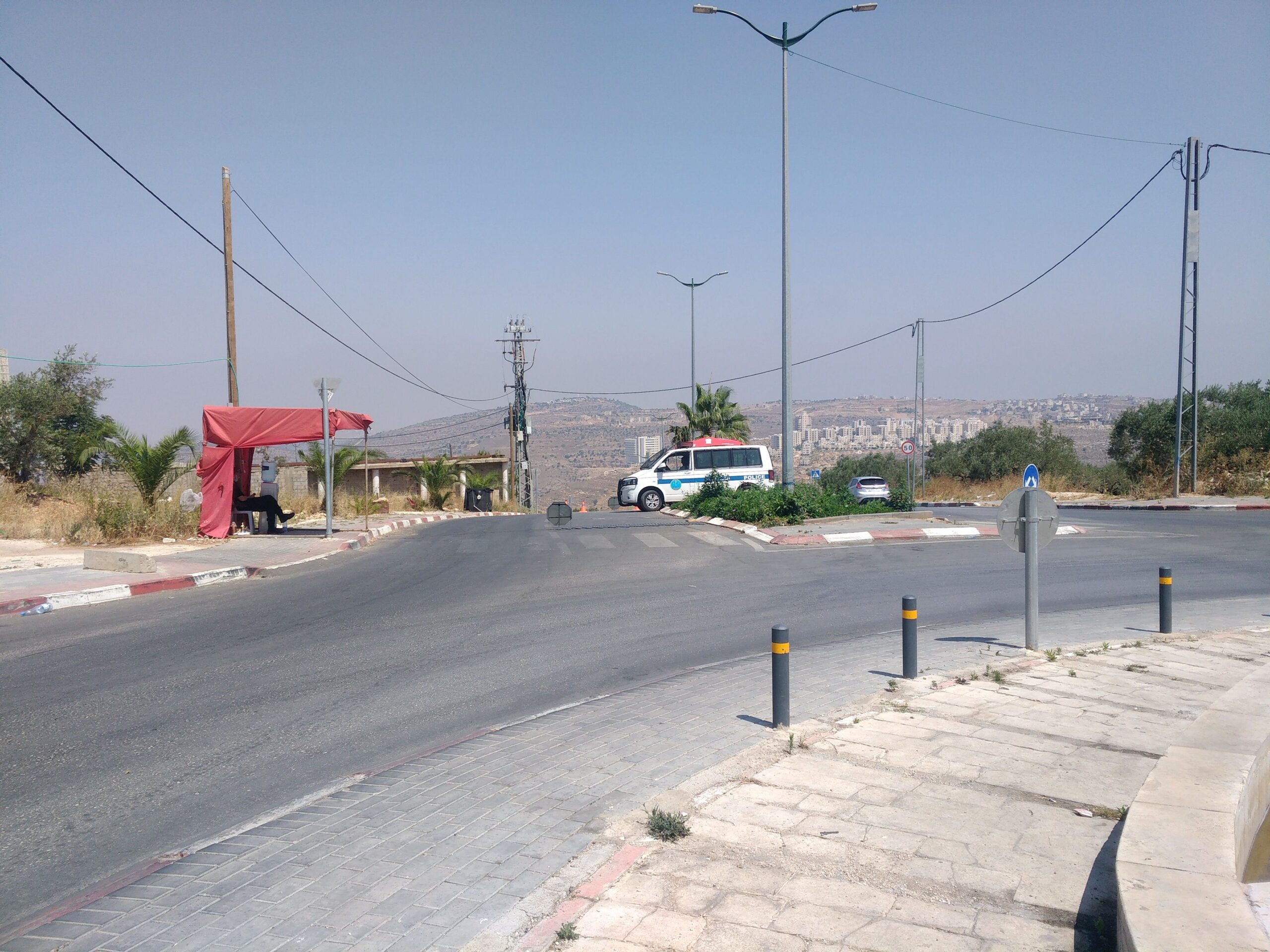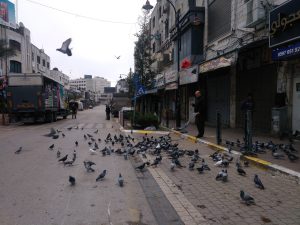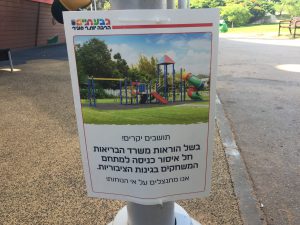No daycare or camp; my partner is away. Being alone all day, every day, with my two kids might be more dangerous than the pandemic.
“Forat, do clean up, tidy up,” I called to my daughter for the fourth time. “You’re not allowed to play with new toys before you pick up the pencils and paper from the floor.”
I’m six,” she called back. “I don’t play with toys anymore.” I entered the children’s room. She was naked except for a headband shaped like cat ears on her head and a scarf that she had tied around her neck as a superhero cape. She had emptied the drawers of her nightstand and was busy filling handbags and backpacks with hairbands, Lego pieces and tiny balls of play-dough that she had rolled, in different colors.
“Forat!” I said, and I can’t deny that I was shouting. “Do clean up, tidy up!” She burst into tears and threw herself on her bed. “I can’t stand all this clean up, tidy up!” she sobbed.
I sat next to her. I took a deep breath. We were in Day 3 of a renewed corona virus lockdown in the West Bank, which included closing daycares and summer camps. The border with Jordan was still closed, but my partner Osama had gotten a rare permit to travel abroad via the Ben Gurion airport, for an urgent trip. I was alone with the children every day, all day, until they fell asleep at 9 pm and I began my work day. If my relationship with Forat were to survive the lockdown, I would have to make a change.
I decided to start taking the children for long walks in the mornings and evenings, to refresh them and give me a chance to use my leg muscles, in the absence of a chance to run. We would leave the house with the lifting of the nightly curfew at 8 am and walk again in the early evening, until the curfew resumed at 8 pm. I would push Forat and her two-and-a-half year old brother Adam in the jogging stroller, which was built for one child. We walked to the nature areas that had yet to be paved over in Ramallah, on the outskirts of the residential neighborhoods: paths that wound around the hills, birds, butterflies and the ever-fascinating activities of ants and beetles.
“Brush your teeth so that we can go for a walk,” I told Forat in the morning. Adam danced in celebration and handed me his shoes: “Walk! Walk!”
“Why do we have to go for a walk every day?” Forat screamed.
“Because when we stay home you scream at me,” I said, and immediately regretted it. I had promised Forat that when Osama traveled abroad we would go to the sea in Tel Aviv, celebrate my cousin’s wedding and go camping with her friend Noa from Holon. Everything got canceled on the day the Palestinian Authority declared a five-day lockdown, which in the meantime was extended for another five days and then another four days … lately, there have been between 200 and 500 new documented corona virus infections daily in the West Bank, mostly in Hebron, and the death toll, which had included just three people since May 21, began rising in late June. It now stood at 45, including people in their 40’s and 50’s and, according to an initial report that had yet to be clarified – a 12-day old baby. All businesses were closed, except for supermarkets, bakeries and pharmacies, public transportation was halted, and travel between cities was banned, at least in the 18 percent of the West Bank in which Palestinian police officers are allowed to operate. Just before eight in the evening, dozens of police cars patrolled the streets, calling over loudspeakers for people to go home. No restrictions were imposed on the half million Israeli settlers living in the West Bank. The Palestinian Authority asked Palestinians not to go to their workplaces inside settlements, but in the absence of control over most of the territory, it can’t enforce the request.
As expected, Forat’s mood improved once we got outside. I pushed the stroller up the hills, and we stopped to watch a herd of goats cross the street. We came home by way of the fountain at the western edge of the city, across from the police checkpoint. Adam and Forat ran around the traffic circle and watched the police officers stop and question drivers trying to enter the city. A police car stopped next to us, and the officer opened the window and pointed at me.
“Where’s your mask, my sister?”
I apologized and took it out of my pocket. Then he said, “What about the children?”
After a month and a half of completely ignoring the guidelines, Ramallah residents have started wearing masks. Similar to Israel, we experienced a strict lockdown beginning in March, that ended with a wild opening in late May. We behaved as if the virus were behind us, opening restaurants, resuming large weddings and funerals, and most important to me – opening daycare and summer camps. But unlike Israel, which has remained open despite the spike in corona virus infections, the Palestinian Authority ordered us back home. In the absence of Palestinian control over the borders of the West Bank, the infections in Israel threaten Palestinian attempts at containment. The Palestinian Authority asked – but can only ask – Palestinian workers to stay at their jobs in Israel and not to go back and forth to their towns and villages. The PA also asked the local emergency committees to resume their civil “enforcement” in towns outside the large cities, and especially to prevent congregations at weddings and funerals. And still, pressure at the hospitals was rising, especially in densely populated Hebron.
“How long do they plan to keep the daycares closed?” my neighbor Heba asked me. On one of my morning walks with the children, I discovered a playground that didn’t have a gate and therefore – couldn’t be locked. I took Heba and her children there. That was the morning they announced the results of the Tawjihi, the college matriculation exam, and the skies roared with fireworks set off by triumphant high school seniors.
Heba continued: “It would be better if they let all of us get sick and recover, let some of us to die, than to leave the children at home.” Heba, an accountant at a pharmaceutical company, had three children under the age of six. Even before the pandemic, she was under a lot of pressure.
“What about your mother?” I asked.
“I take the kids to her, but she’s old. She thinks a good child is a child who eats and sleeps. She keeps asking me why my kids are always running and jumping.”
I looked at her and my children, running and jumping in the sand and on the slide. I reminded myself how lucky we are to be healthy and safe, and that I should keep that in mind the next time Forat refuses to do clean up, tidy up.
This post was also published on July 14, 2020 at haaretz.com: https://www.haaretz.com/israel-news/climbing-the-walls-and-picking-my-battles-in-the-west-bank-1.8994299



